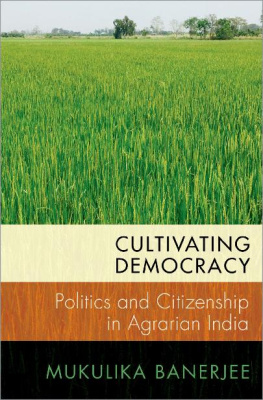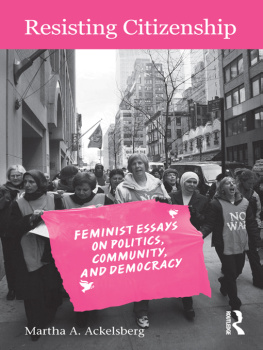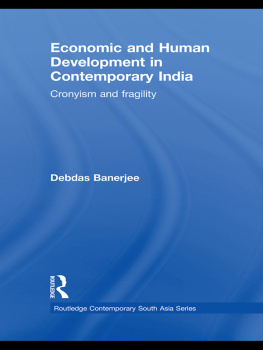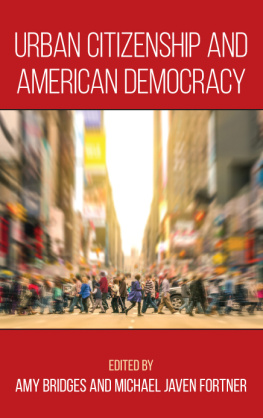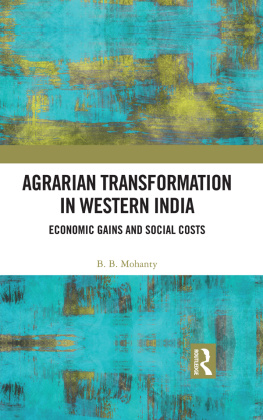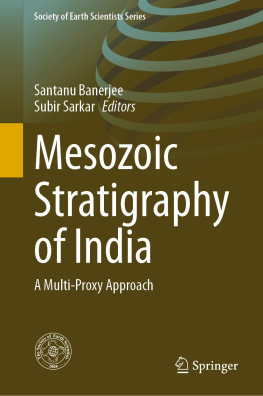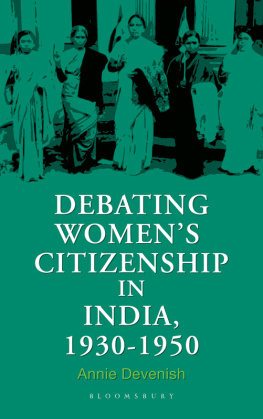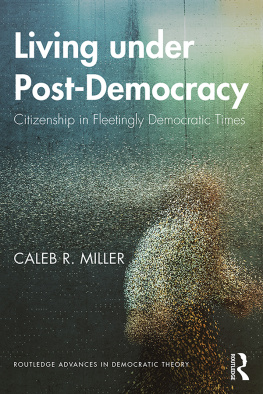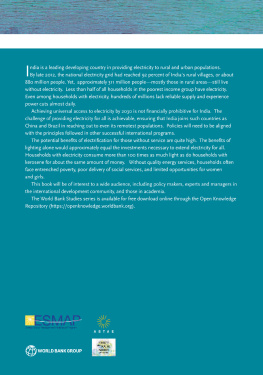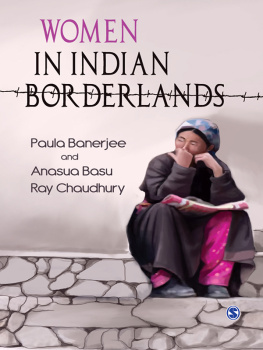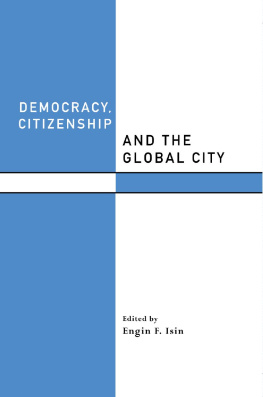Cultivating Democracy
MODERN SOUTH ASIA
Ashutosh Varshney, Series Editor
Pradeep Chhibber, Associate Series Editor
Editorial Board
Kaushik Basu (Cornell)
Sarah Besky (Cornell)
Jennifer Bussell (Berkeley)
Veena Das (Johns Hopkins)
Patrick Heller (Brown)
Niraja Gopal Jayal (Jawaharlal Nehru University)
Devesh Kapur (Johns Hopkins)
Atul Kohli (Princeton)
Pratap Bhanu Mehta (Ashoka University)
Shandana Khan Mohmand (University of Sussex)
Ashley Tellis (Carnegie Endowment for International Peace)
Steven Wilkinson (Yale)
The Other One Percent
Sanjoy Chakravorty, Devesh Kapur, and Nirvikar Singh
Social Justice through Inclusion
Francesca R. Jensenius
Dispossession without Development
Michael Levien
The Man Who Remade India
Vinay Sitapati
Business and Politics in India
Edited by Christophe Jaffrelot, Atul Kohli, and Kanta Murali
Clients and Constituents
Jennifer Bussell
Gambling with Violence
Yelena Biberman
Mobilizing the Marginalized
Amit Ahuja
The Absent Dialogue
Anit Mukherjee
When Nehru Looked East
Francine Frankel
Capable Women, Incapable States
Poulami Roychowdhury
Farewell to Arms
Rumela Sen
Negotiating Democracy and Religious Pluralism
Karen Barkey, Sudipta Kaviraj, and Vatsal Naresh
Cultivating Democracy
Mukulika Banerjee
Cultivating Democracy
Politics and Citizenship in Agrarian India
MUKULIKA BANERJEE
Oxford University Press is a department of the University of Oxford. It furthers the Universitys objective of excellence in research, scholarship, and education by publishing worldwide. Oxford is a registered trade mark of Oxford University Press in the UK and certain other countries.
Published in the United States of America by Oxford University Press
198 Madison Avenue, New York, NY 10016, United States of America.
Oxford University Press 2022
All rights reserved. No part of this publication may be reproduced, stored in a retrieval system, or transmitted, in any form or by any means, without the prior permission in writing of Oxford University Press, or as expressly permitted by law, by license, or under terms agreed with the appropriate reproduction rights organization. Inquiries concerning reproduction outside the scope of the above should be sent to the Rights Department, Oxford University Press, at the address above.
You must not circulate this work in any other form and you must impose this same condition on any acquirer.
CIP data is on file at the Library of Congress
ISBN 9780197601877 (pbk.)
ISBN 9780197601860 (hbk.)
ISBN 9780197601891 (epub.)
DOI: 10.1093/oso/9780197601860.001.0001
For
Julian
Like the sailor, the citizen is a member of a community. Now, sailors have different functions, for one of them is a rower, another a pilot, and a third a lookout man, a fourth is described by some similar term; and while the precise definition of each individuals virtue applies exclusively to him, there is, at the same time, a common definition applicable to them all. For they have, all of them, a common object which is safety in navigation. Similarly, one citizen differs from another, but the salvation of the community is the common business of them all. This community is the Constitution; the virtue of the citizen must therefore be relative to the constitution of which he is a member.
Aristotle on the General Notion of the Virtue of Citizen in Politics
Constitutional morality is not a natural sentiment. It has to be cultivated. We must realize that our people have yet to learn it. Democracy in India is only a top-dressing on an Indian soil which is essentially undemocratic.
B. R. Ambedkar, Constituent Assembly Debates (1948)
There is no single word in the entire history of human speech to and through which more has happened than the word democracy, not even word God, though over an even lengthier time the words for God or gods have proved still harder to translate between the languages of the world. At least in the countries of the West, and probably now across the world as a whole, one salient prerequisite for improving political judgement is to recognize just what has recently happened to and through the still sometimes-charismatic but almost never clarificatory term democracy.
John Dunn, Breaking Democracys Spell (2014: 56)
Democracy is, in fact, part of the political enchantment of modernity. It introduces a new principle of the political construction of society which leads to exhilarating moment by making some unprecedented changes possible. But it also leads to despair by making people expect too much, often by turning the conception of democracy in some forms of nave thinking into a secular equivalent of paradise.... Indian democracy is in fact a historical scandal because it defies all the postulated prior conditions.... India provides one example of the expansion of democracy in a world within which Europe does not constitute the whole of the continent of democracy, but a province.
Sudipta Kaviraj, The Enchantment of Democracy and India (2011: 1, 1314, 22)
We produce knowledge in a mode of intimacy with our subjects. Hence ethnography as a genre seems to be a form of knowledge in which I come to acknowledge my own experience within a scene of alterity. After all, it is the nature of everyday life that the significance of events is not given at the moment of their occurrence and it is in the nature of experience that its meaning eludes us... In being attentive to the life of others we also give meaning to our lives.
Veena Das, Between Words and Lives (2015: 404)
Contents
This book was completed in the middle of a pandemic that revealed the fragility of held certainties. An invisible virus about which science knew little, took lives across the world forcing a halt in activities that we had come to take for granted such as travel, classroom teaching, and hugging friends. In a few weeks it also became clear that the degree of devastation in each national context depended on its quality of political leadership. Some countries did better than others and discernable patterns emerged. Democracies did not do better, as they had done in the previous century, in managing famines for instance. In fact, the worst-performing countries were all democracies, India among them. This has focused our attention on reexamining whether the twentieth-century certainty that democracy was the best-among-worst solutions of political arrangements still held true. Research and writings produced through the pandemic drew attention to the democratic cultures in a variety of national contexts and showed that formal democratic procedures did not necessarily create what was required in such times, namely a democracy of spirit of civic commitment and trust in government. These had to be cultivated and nurtured alongside the formal structures. The recent turn in formal democracies to polarized opinions and trust in strong men who wasted no time striving for consensus and relied instead on inflammatory and partisan utterances, did not facilitate forging a collective response to such a challenge. The democratic spirit was thus constantly under threat and needed to be continually regenerated.



